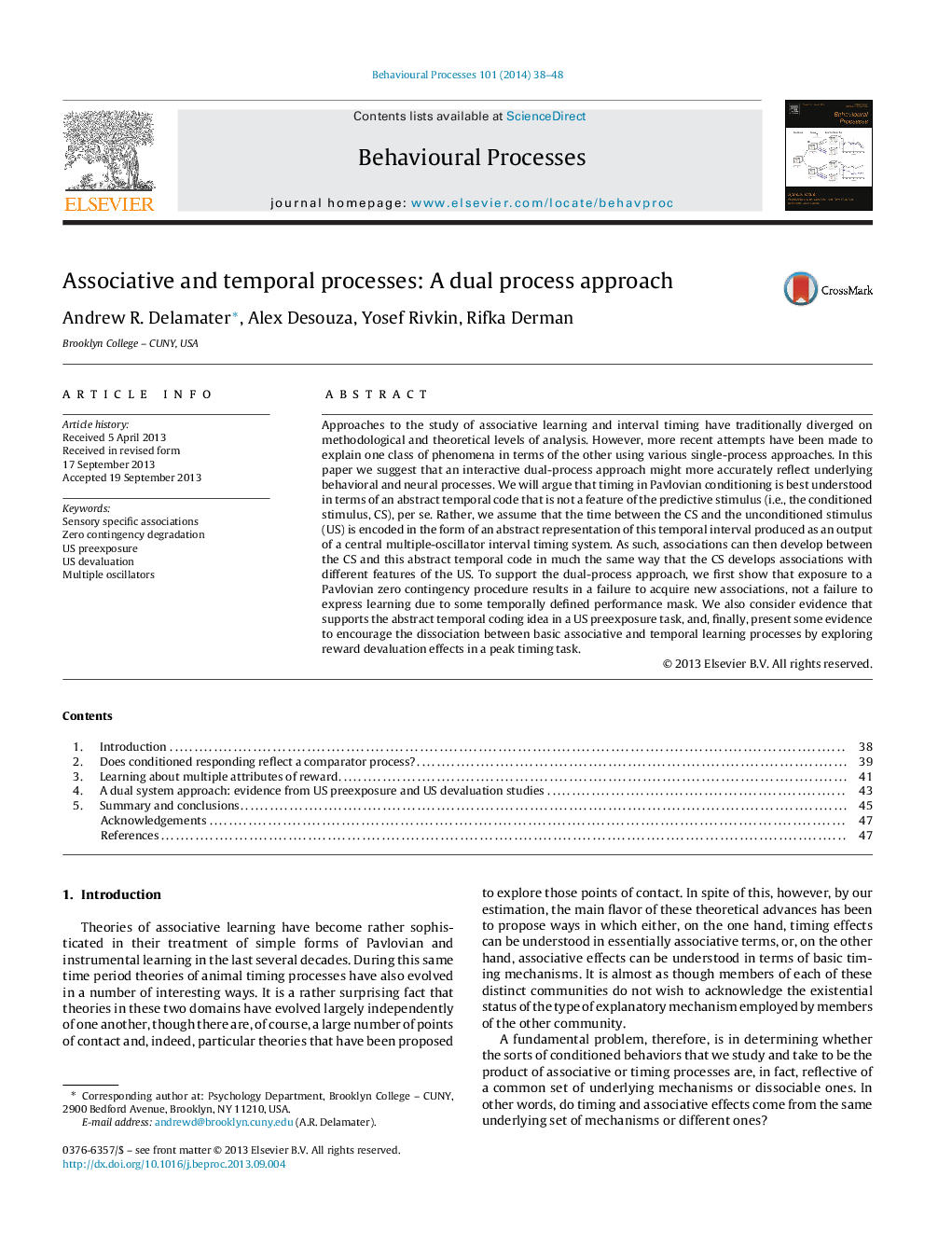| کد مقاله | کد نشریه | سال انتشار | مقاله انگلیسی | نسخه تمام متن |
|---|---|---|---|---|
| 8497372 | 1553178 | 2014 | 11 صفحه PDF | دانلود رایگان |
عنوان انگلیسی مقاله ISI
Associative and temporal processes: A dual process approach
ترجمه فارسی عنوان
فرآیندهای وابسته و زمانی: رویکرد فرایند دوگانه
دانلود مقاله + سفارش ترجمه
دانلود مقاله ISI انگلیسی
رایگان برای ایرانیان
کلمات کلیدی
انجمن های خاص حساسی، تخریب احتمالی صفر، پیش شرط آمریکا، کاهش ارزش ایالات متحده، اسیلاتورهای چندگانه،
موضوعات مرتبط
علوم زیستی و بیوفناوری
علوم کشاورزی و بیولوژیک
علوم دامی و جانورشناسی
چکیده انگلیسی
Approaches to the study of associative learning and interval timing have traditionally diverged on methodological and theoretical levels of analysis. However, more recent attempts have been made to explain one class of phenomena in terms of the other using various single-process approaches. In this paper we suggest that an interactive dual-process approach might more accurately reflect underlying behavioral and neural processes. We will argue that timing in Pavlovian conditioning is best understood in terms of an abstract temporal code that is not a feature of the predictive stimulus (i.e., the conditioned stimulus, CS), per se. Rather, we assume that the time between the CS and the unconditioned stimulus (US) is encoded in the form of an abstract representation of this temporal interval produced as an output of a central multiple-oscillator interval timing system. As such, associations can then develop between the CS and this abstract temporal code in much the same way that the CS develops associations with different features of the US. To support the dual-process approach, we first show that exposure to a Pavlovian zero contingency procedure results in a failure to acquire new associations, not a failure to express learning due to some temporally defined performance mask. We also consider evidence that supports the abstract temporal coding idea in a US preexposure task, and, finally, present some evidence to encourage the dissociation between basic associative and temporal learning processes by exploring reward devaluation effects in a peak timing task.
ناشر
Database: Elsevier - ScienceDirect (ساینس دایرکت)
Journal: Behavioural Processes - Volume 101, January 2014, Pages 38-48
Journal: Behavioural Processes - Volume 101, January 2014, Pages 38-48
نویسندگان
Andrew R. Delamater, Alex Desouza, Yosef Rivkin, Rifka Derman,
